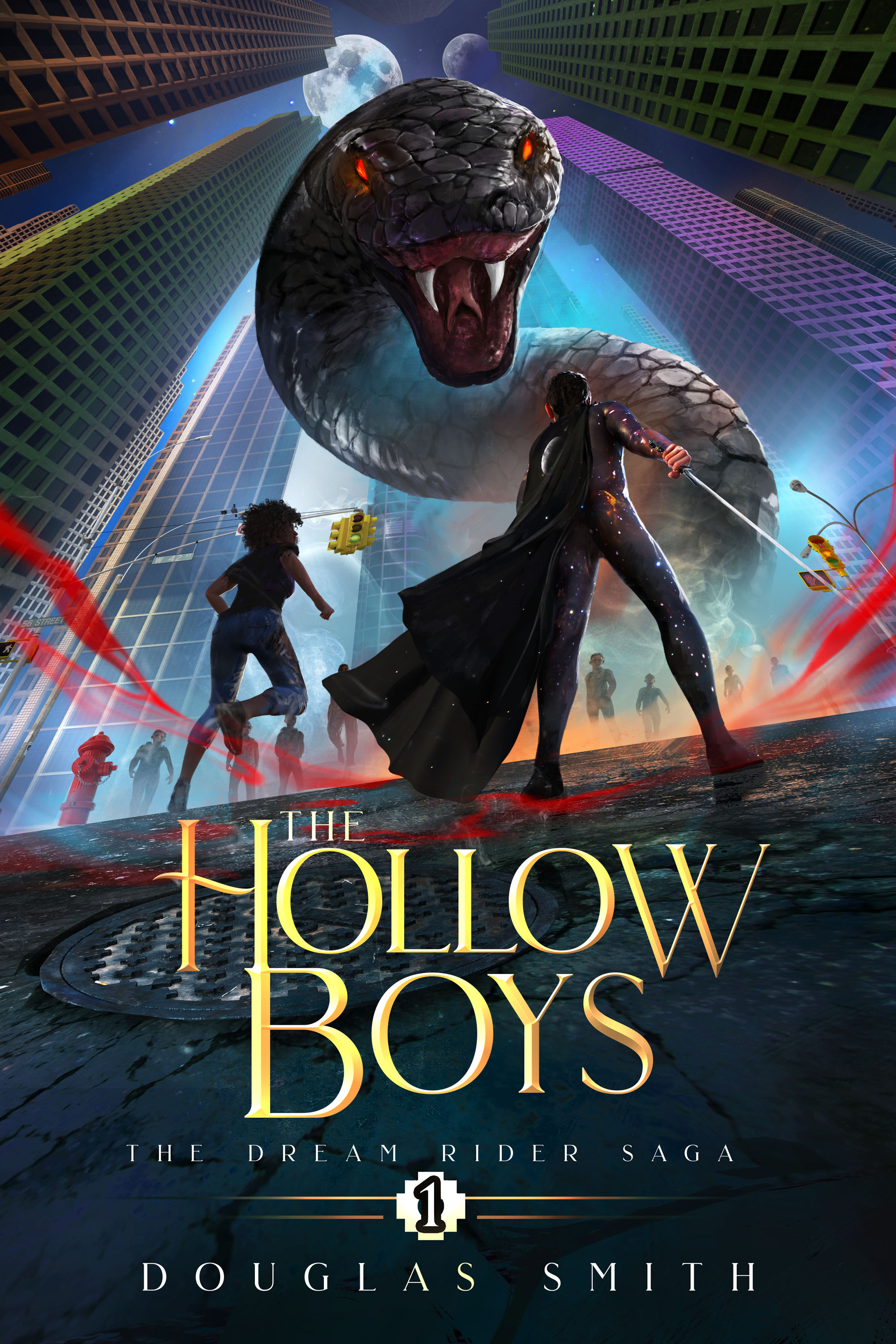 The nomination period is now open for the 2023 Aurora Awards, recognizing the best of Canadian SF & Fantasy published in 2022.
The nomination period is now open for the 2023 Aurora Awards, recognizing the best of Canadian SF & Fantasy published in 2022.
This year, I have two works that are eligible to be nominated:
- The Hollow Boys: The Dream Rider Saga, Book 1 is eligible under "Best YA Novel"
- "Gypsy Biker's Coming Home" is eligible under "Best Novelette / Novella"
Any Canadian citizen or permanent resident may nominate for the Auroras. If that's you, I'd truly appreciate any consideration you'd give to nominating me.
I explain how to nominate below, but first, let me talk up my two works, because I'm very proud of them, and both have received a lot of critical notice.
The Hollow Boys: The Dream Rider Saga, Book 1
This first book in my new trilogy has received universal praise, sitting at between 4.8 and 5.0 stars on all the major retailers plus garnering great reviews from top book review sites:
"This arresting series kickoff from Smith grips from the start as it introduces its inventive milieu, its flawed but fantastically powered hero, its playful worldbuilding, and a host of tantalizing mysteries. … Takeaway: Thrilling YA fantasy." —BookLife (Editor's Pick)
"An assured, confident novel with strong world-building, sharp dialogue and the perfect balance between action and emotional growth for its main characters. … In short, this is a must-read story for YA fantasy fans." —Blueink Review (★ Starred review)
"Inventive, engaging, and boundless fun. … I enjoyed The Hollow Boys a great deal, turning pages long after I should have been abed. Smith has produced the best Canadian superhero adventure since James Alan Gardner's Dark vs. Spark novels." —The Ottawa Review of Books
If you haven't read The Hollow Boys but would like to, here are some options.
- You can read the first four chapters for free here.
- I am also offering a discount from my website store here. Use the coupon code "AURORAS23" at checkout to get the ebook for $0.99 (Regular $4.99 US). Note: this coupon expires when the nomination period ends April 22 and is restricted to the first 100 downloads.
"Gypsy Biker's Coming Home"
The story has also received recent recognition. It's currently a finalist for the Alberta Magazine Awards under the "Fiction" category, as I wrote about earlier. So, yeah, it's a good story. Thanks to the same Alberta Magazine Awards, the story is available to read online.
How to Nominate in the Auroras
To nominate, you need to register to be a member of the CSFFA (Canadian SF & Fantasy Association). Go here and click on "Not a Member Yet?" to register for 2023.
Fill out your name, email, and home province, then select a username and password for the site. NOTE: one weirdness with this form—you'll find the first box to enter your password is filled with black dots. To get rid of them, just click in the box, then hold down your "DELETE" key until they all disappear. Then enter your password in that box and in the one below to verify it.
Registration costs $10 CAD, but this allows you to both nominate (this step) and vote on the final ballot. Not much to pay, imo, to support Canadian SF & fantasy.
Once you're logged in, click on the "Pay Membership Fee with PayPal" button at the bottom to be taken to a PayPal screen. Don't use PayPal? You'll have the option to pay by debit or credit.
You'll then be taken back to the Awards site. Click on "Log in" under "You Are A Member?" then enter your brand new username (or email) and password. You'll then be on the Aurora Awards main page. Select "Nominate" from the middle of the screen to access the online nomination form.
You can nominate up to five works in each category, but you don't need to nominate in every category or that many in any category.
To nominate a work, just click on one of the boxes under the category and select the appropriate title of the work you wish to nominate from the dropdown list of eligible works. Click on the "Update nominations" button for the category, then move to your next category.
The Hollow Boys is eligible under "Best YA Novel" and "Gypsy Biker's Coming Home" is eligible under "Best Novelette / Novella."
The nomination period closes at 11:59 pm on Saturday, April 22, 2023.
Thanks again for any consideration you give to nominating my writing!